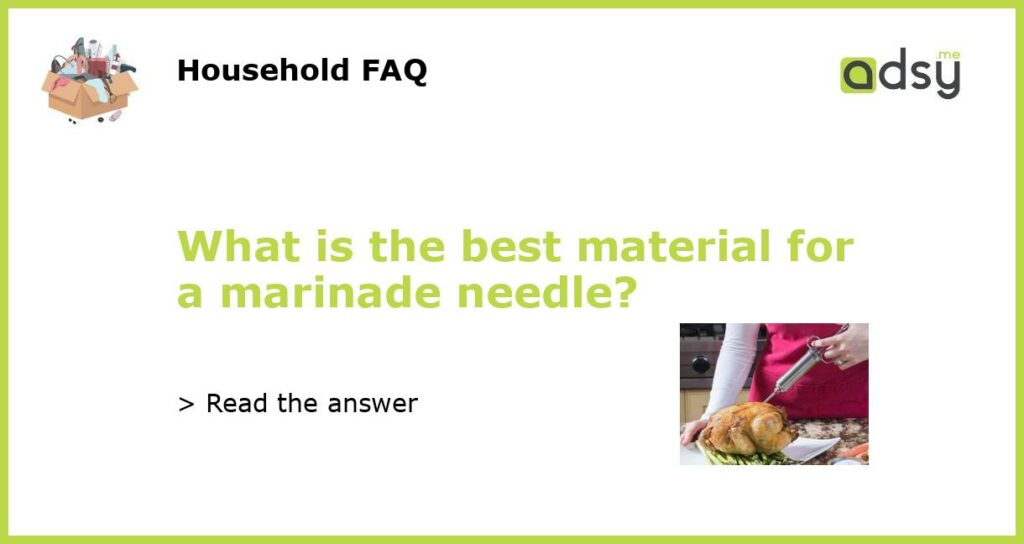A marinade needle is a vital tool in the kitchen when it comes to infusing meat with flavors. The needle allows a cook to inject marinade deep into the meat, ensuring a more flavorful and juicy result. However, not all marinade needles are created equal. One of the most important factors to consider is the material the needle is made of. In this article, we will explore the best material for a marinade needle and why it matters.
Stainless Steel
Stainless steel is a common material for marinade needles. It is durable, easy to clean, and does not rust or corrode. However, not all stainless steel is equal. Look for needles made with high-quality stainless steel, such as 304 or 316 stainless steel. This will ensure that the needle will not react with the acidic marinade and will not leave any metallic taste in the meat.
Silicone
Another material that is gaining popularity for marinade needles is silicone. Silicone needles are flexible, heat-resistant, and easy to clean. They can also be used for non-meat applications, such as injecting marinade into vegetables or fruits. However, one downside of silicone needles is that they are not as durable as their stainless steel counterparts and may need to be replaced more frequently.
Plastic
Plastic marinade needles are the most affordable option, but they are also the least durable. They may warp or melt when exposed to high heat, and they can also be harder to clean. Plastic needles are best for occasional use or for injecting marinade into softer meats, such as chicken or pork.
Choosing the best material for a marinade needle depends on your needs and preferences. Stainless steel is a durable and reliable option, while silicone offers more flexibility and versatility. Plastic is the most affordable option but may not be as durable or easy to clean. Whichever material you choose, make sure to invest in a high-quality needle that will last for many cooking sessions to come.






